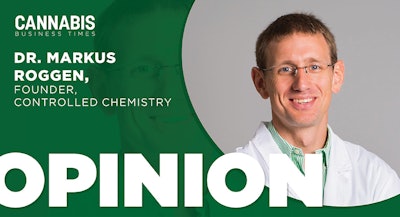
Recently, at a large cannabis trade show, an astonishing disconnect was evident. This event, showcasing every conceivable innovation in cannabis cultivation, processing, software solutions, and transportation, glaringly omitted one crucial aspect: the safety of cannabis production staff. Despite the array of advanced technologies and solutions on display, there was a startling absence of personal protective equipment (PPE) for workers, apart from basic gloves. This oversight is not just negligent; it's a scathing indictment of the industry's disregard for the well-being of those on the front lines of cannabis production.
How can that be? Particularly after the widely publicized death of a cannabis production worker in Massachusetts that was attributed to occupational asthma.
The hazards associated with cannabis production are well-documented. Workers in the industry face a range of health risks due to exposure to cannabis. A study highlighted the prevalence of respiratory symptoms, skin rashes, and musculoskeletal pain among cannabis cultivation workers, not to mention the physical dangers and substandard living conditions they often endure (Beckman, Castañeda, Rivas, & Schenker, 2022). Another study found high rates of allergic and respiratory symptoms among employees in indoor cannabis grow facilities, with increased risks correlating with higher exposure to cannabis dust (Sack, Ghodsian, Jansen, Silvey, & Simpson, 2020). These findings are echoed in a review that notes potential exposures in the cannabis industry to allergens, respiratory hazards, and ergonomic stressors (Couch, Grimes, Green, Wiegand, King, & Methner, 2020).
Cannabis is a known sensitizer, and constant exposure can lead to severe health problems. For example, employees in the industry may be exposed to organic dusts, bioaerosols, pollen, allergens, and volatile organic compounds, all of which can pose significant health risks (Davidson, Reed, Oosthuizen, O'Donnell, Gaur, Cross, & Dennis, 2018). Despite these known hazards, the blatant disregard for PPE highlights a disturbing trend in the industry that I witnessed in my experience consulting for U.S. and Canadian producers: profit and progress trumping worker safety.
The lack of appropriate PPE is a call to action. It's time for the cannabis industry to step up and prioritize the health and safety of its workers. Recommendations for necessary PPE in the cannabis industry should include respiratory protection, such as masks or respirators, to guard against inhalation of harmful dust and allergens. Protective clothing and eyewear are essential to prevent skin and eye irritation from cannabis contact. Ergonomic supports and proper footwear should be standard to mitigate musculoskeletal risks.
The industry must shift its focus and recognize that the health and safety of its workers are as vital as the technologies that drive production. This oversight on the expo floor at industry trade shows should not be seen as a mere mishap but as a wake-up call. By integrating comprehensive safety measures and PPE into its standard practices, the industry can protect its most valuable asset: its workforce. And it will protect the industry from future lawsuits and violations from the Occupational Safety and Health Administration (OSHA).
The path forward is clear: prioritize worker safety, invest in appropriate PPE, and commit to a culture of health and safety that matches the industry's commitment to innovation and growth. Only then can the cannabis industry truly claim to be progressive and responsible.
Dr. Markus Roggen is founder of Controlled Chemistry, an academic joint venture licensed for cannabis research focused on extraction optimization, analytical testing, and process development. Controlled Chemistry is the rebirth of Delic Labs / Complex Biotech Discovery, reorganized toward Catalytic Theory Crafting and Conceptual Seedbed Studies.
Roggen received his M/Sci degree from Imperial College, London, UK in 2008. He received his Ph.D. in 2012 in organic chemistry at the Federal Institute of Technology in Zürich (ETHZ), and completed a postdoc in physical organic chemistry at The Scripps Research Institute in La Jolla in 2014. He then entered the cannabis industry in 2014 and since has held executive positions in analytical and production companies. His research into process optimization and analytical methods has been recognized with a number of awards, ElSohley Award of the ACS, Cannabis Scientist Power List 2020, 2021 & 2022, among others. Roggen is also a trusted adviser and mentor to multiple startups, startup accelerators and organizations.


























